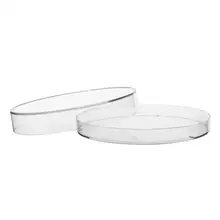Cost of 40-Ton Weighbridges
The cost of 40-ton weighbridges can differ markedly, influenced by the type, dimensions, and functionalities they provide. These precision devices are crafted for the weighing of stationary or moving vehicles to ascertain their load. They play a pivotal role in sectors such as logistics, agriculture, and mining, where precise weight assessments are vital for efficiency, safety, and adherence to regulations.
Weighbridges primarily serve as platforms for vehicles to mount for weight measurement. They are typically outfitted with load cells—sensors that detect force and translate it into an electrical output. These cells are linked to a display unit that shows the vehicle's weight. The system may also encompass additional elements like data management software, printers for weight slips, and connectivity features for system integration.
Built for durability and accuracy, weighbridges are available in various configurations, from portable units for temporary needs to permanent fixtures with sophisticated data handling software. The capability to record and maintain weight information is a key attribute that bolsters operational oversight, inventory control, and financial dealings.
Varieties of 40-Ton Weighbridge Costs
The market offers diverse weighbridge models, each tailored to meet particular requirements:
-
Truck Scale: Tailored for truck and cargo weighing, this variant comprises multiple elongated platforms that combine to create a single weigh area. Truck scales are indispensable for confirming vehicle weights at highway checkpoints and are widely utilized in sectors where cargo is weighed en route.
-
Axle Weighbridge: Axle weighbridges specialize in gauging the weight of individual axles, commonly used at industrial locales with heavy multi-axle machinery. They ensure legal compliance in load distribution and weight limits.
-
Pit Weighbridge: Installed flush with the ground or in a pit, pit weighbridges offer a discreet and level weighing area. They are frequently found at cargo hubs and can accommodate both standard and unconventional vehicles.
-
Portable Weighbridge: Portable weighbridges cater to locations lacking permanent fixtures or where flexibility is necessary. These mobile scales are easily transportable and assembled, perfect for events, construction sites, or provisional stations.
Each weighbridge type is conceived with distinct operational scenarios in mind, ensuring clients can identify the ideal fit for their specific needs.
Selecting a 40-Ton Weighbridge
Choosing the appropriate 40-ton weighbridge entails several considerations:
-
Capacity and Size: Evaluate the heaviest load to be measured and opt for a bridge that can handle it without the risk of overloading. Also, ensure the weighbridge's dimensions are compatible with the installation site.
-
Durability and Material: The setting for the weighbridge dictates the material selection. Stainless steel offers resilience and is ideal for outdoor settings where weather resistance is key, while carbon steel may be adequate for indoor applications where longevity is a priority.
-
Accuracy and Sensitivity: In sectors where precision is non-negotiable, such as scientific research or manufacturing, it is crucial to select models with high accuracy and sensitive load cells.
-
Integration Capability: Consider the weighbridge's compatibility with your current systems. For operations requiring smooth data exchange, ensure the chosen model supports the necessary software reengineering.
40-Ton Weighbridges on Alibaba.com
Alibaba.com presents a vast array of weighbridges to suit diverse industrial applications. Since 1999, the platform has connected buyers with global suppliers, streamlining the procurement of robust equipment like weighbridges that offer precise measurements even under strenuous conditions.
Potential buyers can sift through options based on criteria such as capacity, construction materials like stainless or carbon steel, power sources including battery or solar, display preferences like LED or digital, and extra features such as waterproofing. With comprehensive product details and supplier profiles available, informed purchasing decisions are made simpler.
Furthermore, Alibaba.com prioritizes customer contentment and secure transactions, offering services like Trade Assurance—a payment protection service until delivery is confirmed. This commitment to buyer assurance positions Alibaba.com as a prime marketplace for enterprises seeking high-quality weighbridges that meet their operational and fiscal needs.
Frequently Asked Questions on 40-Ton Weighbridge Costs
What is the capacity spectrum for 40-ton weighbridges?
40-ton weighbridge capacities can range from 20,000 kg to over 100,000 kg, depending on the make and model. Companies should select a weighbridge that aligns with their specific weight measurement needs.
How can I identify the most suitable weighbridge for my enterprise?
Identifying the most fitting weighbridge type hinges on your business's unique demands. For sectors requiring portability, truck scales are advisable, whereas static or portable scales may suffice for smaller ventures.
Is it possible to tailor weighbridges to meet particular business needs?
Indeed, numerous suppliers provide bespoke solutions that can be adapted to meet specific business requirements, including custom dimensions, display options, material choices, and system integration.
Are weighbridge materials varied, and does it make a difference?
Yes, weighbridges are constructed from various materials like stainless or carbon steel. The choice of material affects aspects such as durability, cleanliness, and environmental suitability.
What are the power supply alternatives for weighbridges?
Weighbridges are available with different power supply options, from battery-powered units for mobile scales to wired systems needing a power connection.
How significant is the color of a weighbridge in a commercial context?
The color of a weighbridge is generally a secondary consideration, chosen to align with a company's branding or functional needs.
What display options do weighbridges offer, and which is optimal for my use?
Weighbridges feature a variety of display types, including LCD, LED, digital, and touch screen. The ideal choice depends on visibility requirements and environmental conditions.
Can weighbridges be integrated with pre-existing systems?
Most weighbridges are designed to integrate with existing systems. Compatibility checks and potential software reengineering should be considered for seamless integration.
Do all weighbridges include a warranty?
Warranty conditions vary among suppliers. It is advisable for businesses to consult directly with suppliers regarding warranty coverage for the specific weighbridge model of interest.
What unit measurements do weighbridges offer?
Weighbridges typically provide measurements in kilograms (kg) or pounds (lb), with some models offering additional features like ounce displays or tonnage calculations.
How does the unit feature of a weighbridge influence its application?
The unit feature—whether in kg or lb—determines the measurement units used. The selection will be based on the standard weight units prevalent in your business's region or industry.
What environmental factors should be considered for a weighbridge?
When considering a weighbridge, take into account environmental factors such as temperature, humidity, and chemical exposure. Stainless steel is often preferred for its corrosion resistance and robustness in challenging conditions.
Is it feasible to find a weighbridge that accommodates my spatial limitations?
Certainly, the market offers a range of weighbridge types and sizes that can be chosen to fit spatial constraints. Accurate space measurements are crucial to ensure the selected weighbridge will fit appropriately.
Are there any sector-specific considerations when selecting a weighbridge?
Indeed, sector-specific considerations may include the nature of the material being weighed (e.g., bulk materials versus packaged goods), special environmental conditions affecting accuracy (e.g., vibrations), and any industry-specific legal mandates.






























 浙公网安备 33010002000092号
浙公网安备 33010002000092号 浙B2-20120091-4
浙B2-20120091-4